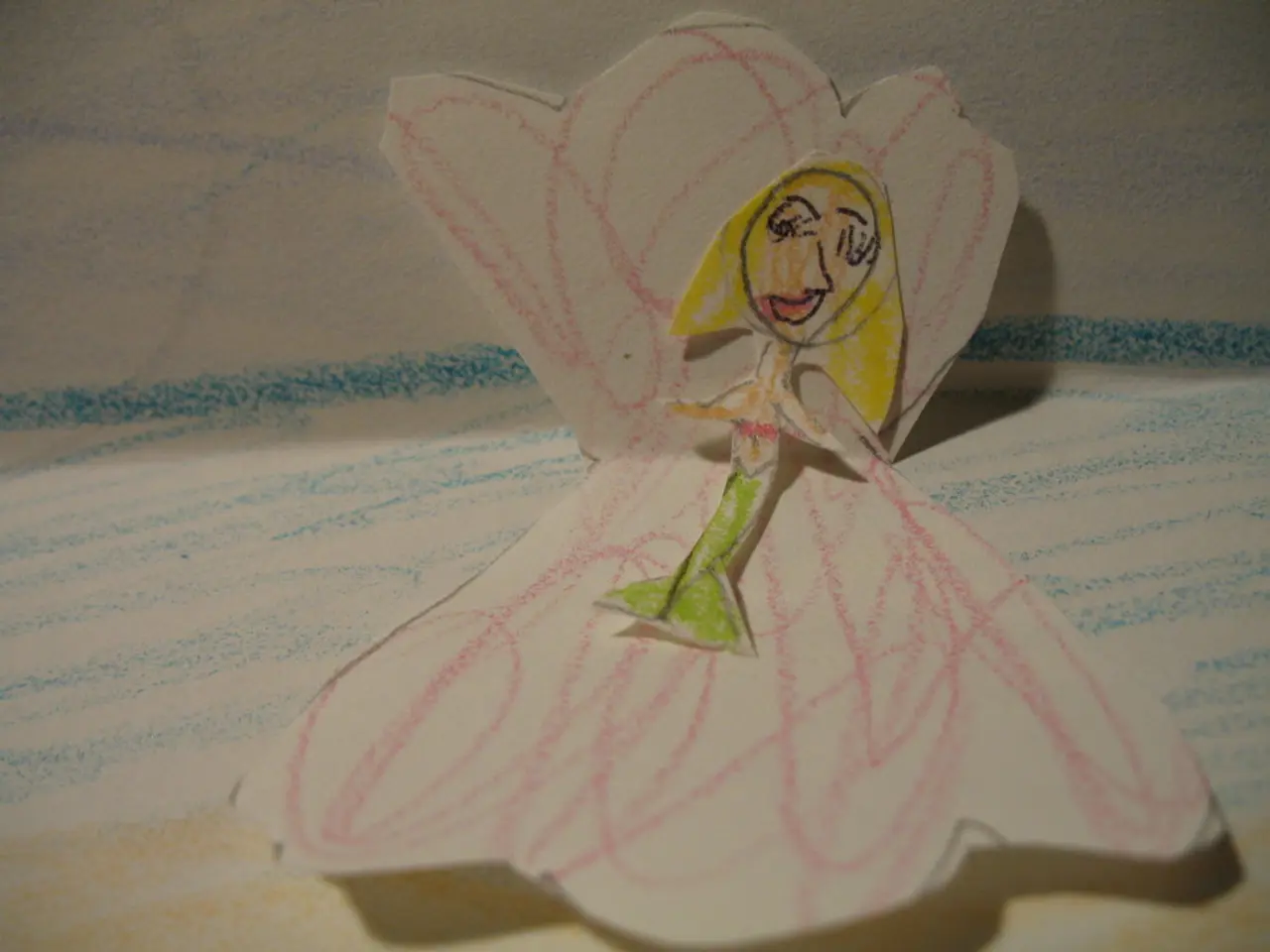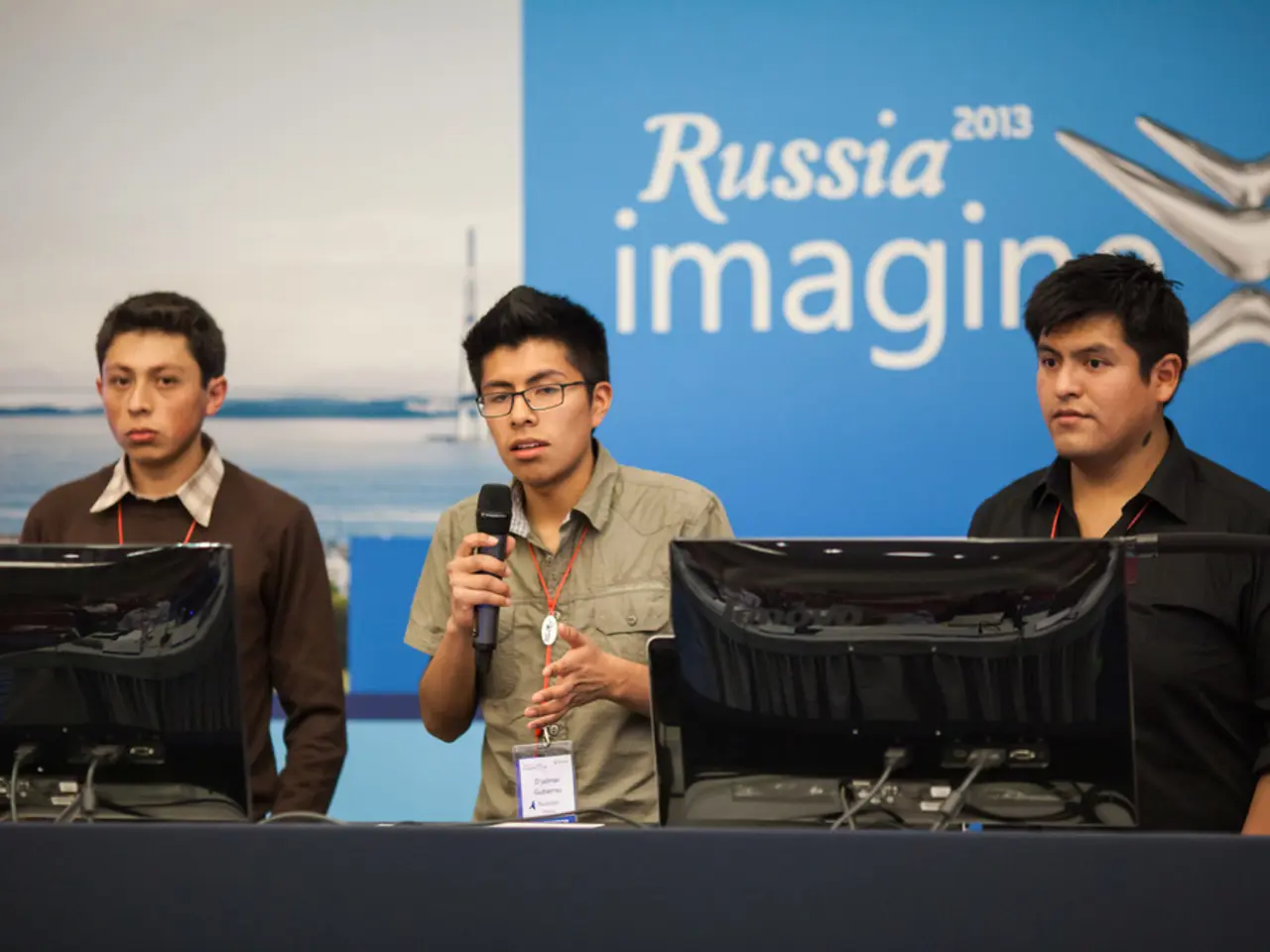Artificial Intelligence Impact on Creative Industries: Exploring the fusion of artificial and artistic
The UK's creative sector is experiencing a significant shift, with a growing emphasis on integrating Artificial Intelligence (AI) technologies across various disciplines. This transformation is evident in art, fashion, media, music, and design sectors, as evidenced by the establishment of the Centre for Creative AI in 2025.
The Centre, a collaborative initiative between University College London (UCL), the Royal College of Art (RCA), and The Brandtech Group, is backed by industry leaders such as Diageo, Unilever, Snap, and others. Its primary objectives include driving innovation and research into generative and creative AI technologies, facilitating partnerships between academia, industry, and emerging talent, and supporting students and early-career creatives by embedding AI into creative workflows.
Beyond the Centre, Arts Council England has invested over £3.9 million since 2019 to support artists working with AI, promoting both creative expression and critical engagement with the impacts of AI technologies. Organizations such as Serpentine Galleries and FACT are also actively engaging communities and audiences to explore AI’s role in creative practices.
The UK's position in AI research is strong, particularly in domains relevant for the creative industries, such as image, text, and sound data. The report, commissioned by the Creative Industries Council, recommends supporting a higher level of commercial activity and academic research collaboration between AI researchers and the creative industries.
Despite the rapid advancements, direct applications of AI in creative industries are relatively low, with the absolute level of projects in the tens of companies and projects. However, AI tools have become more effective and accessible, with extensive open-source software available. Creative content online is routinely recommended to users using machine learning algorithms on platforms like Spotify and YouTube.
The UK's creative industries have been one of the fastest-growing parts of the economy in recent years. The country's AI Sector Deal and Creative Industries Sector Deal, as part of its Industrial Strategy, aim to further bolster the sector's growth and competitiveness.
However, the report does not provide specific information about the skills needs of creative businesses in terms of foreign talent post-Brexit, or the impact of Brexit on the international trade of creative goods and services in the UK.
The report was authored by Juan Mateos-Garcia (Director of Innovation Mapping at Nesta), John Davies (Principal Data Scientist at Nesta), Kostas Stathoulopoulos (Principal Researcher for Innovation Mapping at Nesta), and Joel Klinger (Data Developer for Innovation Mapping at Nesta). It details the results of a survey of employers in the UK's creative industries regarding their migrant and skills needs.
The worldwide exports of creative goods exceeded 500 billion USD in 2015, with a 150% increase since 2000. However, many countries are rapidly increasing their AI research capability, posing a potential challenge to the UK's leading position in the creative AI sector.
Despite these challenges, the UK's creative sector is poised to remain at the forefront of the global AI-driven creative revolution, driven by strong academia-industry collaboration, dedicated funding, and a strategic focus on nurturing talent to innovate across creative disciplines.
[1] Centre for Creative AI: https://www.creative-ai.org/ [2] Arts Council England: https://www.artscouncilengland.org/ [3] Serpentine Galleries: https://serpentinegalleries.org/ [4] FACT: https://fact.co.uk/ [5] Nesta: https://www.nesta.org.uk/
\n\nThis news article is based on a report commissioned by the Creative Industries Council, which provides insights into the current state of AI applications in the UK's creative industries and offers recommendations for future growth and development. The report highlights the significant, organized effort to integrate and advance AI technologies across various creative sectors, driven by collaborative initiatives like the Centre for Creative AI and dedicated funding from organizations like Arts Council England. The UK's creative sector is positioned at the forefront of the global AI-driven creative revolution, but faces challenges from increasing AI research capability in other countries.
- The Centre for Creative AI, a partnership between UCL, RCA, and The Brandtech Group, prioritizes innovation and research in generative and creative AI technologies.
- Arts Council England has supported artists working with AI since 2019, promoting creative expression and critical engagement with AI technology.
- Organizations such as Serpentine Galleries and FACT are engaging communities to explore AI's role in creative practices.
- The UK's strong AI research position, particularly in relevant domains for creative industries, is highlighted in a report commissioned by the Creative Industries Council.
- AI tools have become more effective and accessible, with extensive open-source software available for creative content online.
- The UK's creative industries have been a significant contributor to the economy, and the government's AI Sector Deal and Creative Industries Sector Deal aim to bolster this growth.
- The report does not provide specific information about post-Brexit foreign talent needs or the impact of Brexit on international trade of creative goods and services in the UK.




